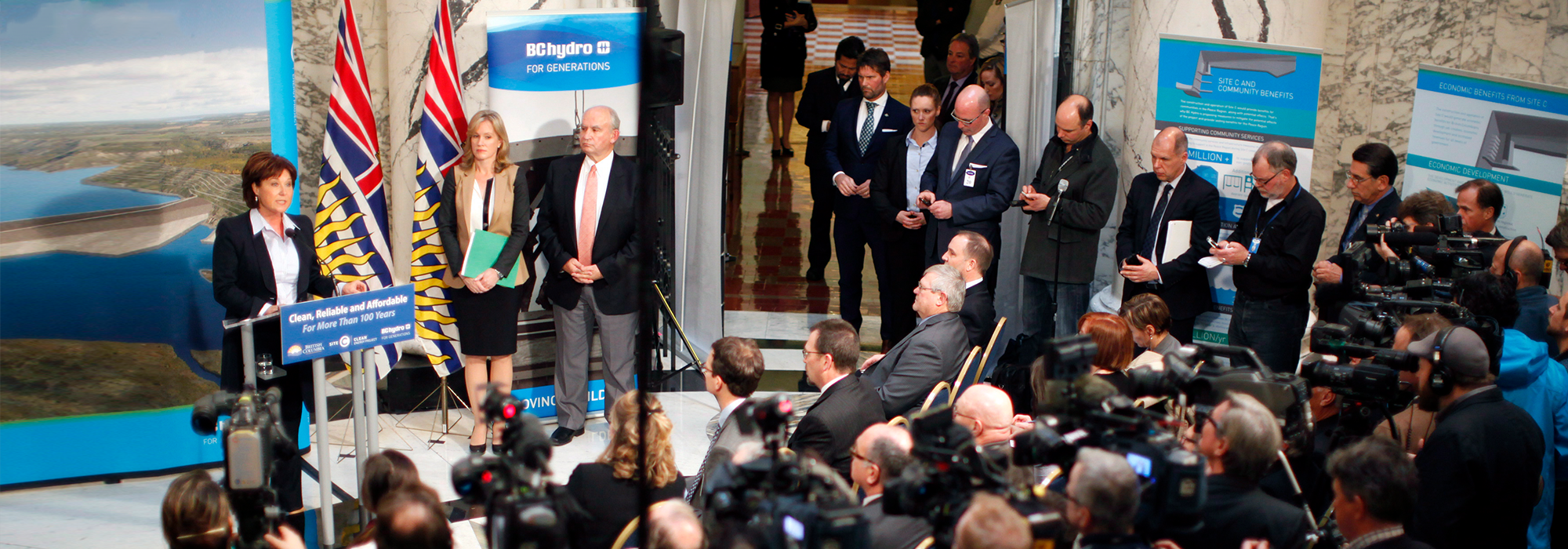
In the winter of 1989, about 10 months before the Berlin Wall fell, Poland’s weak Communist government entered into power-sharing talks with Lech Walesa’s Solidarity movement. As one of two members of the Globe and Mail’s European bureau, I travelled to Poland to report on this geopolitical supernova.
As my translator and I hopped between several parishes one Sunday, intent on hearing what Poland’s long-repressed clergy had to say, we came upon a young man peddling old Commodore 64 computers. He spoke some English. He told me the units had been smuggled in from Germany. I asked, would he get into trouble with the authorities?
He replied that the police weren’t so bothered by young people having computers, “as long as they don’t have modems.”
That was communism for you. It was obsessed with making sure people lacked the means to communicate with one other and to share their realities and worldviews. To that end, it jammed external radio signals, banned books and controlled every organ of the press. Of course, it feared modems.
This is above all why I love the Internet. It marks the most profound advance in the democratization of human communications since the printing press five centuries earlier. It is a finger in the eye of authoritarians. In democratic states, it has enabled the entry of new and more diverse voices into the public square. Without the Internet, would #blacklivesmatter have broken through?
But such revolutionary change doesn’t occur without collateral damage, in this case to the structures and values that have supported journalism and its vital role as a guardian of democracy. More recently, the Internet has shown its ugly face. We have discovered the same tributaries that carry fair-minded inquiry and story-telling are increasingly being polluted by hate, distortion and manufactured falsehood. Fake news.
It is in this context that the Public Policy Forum today released The Shattered Mirror: News, Democracy and Trust in the Digital Age. We began working on this study last June and have since interacted with about 300 people in our attempt to figure out how the decline of Canadian news media is affecting what we call the “civic function of journalism” and as a consequence the health of our democracy. That the decimation of the old model is occurring in the context of an assault on the trustworthiness of news makes the issues all the more urgent.
Our recommendations are intended to shore up “civic-function” journalism.
Our recommendations are intended to shore up “civic-function” journalism: the coverage of public institutions and elected officials, the issues and debates involving them and the ability of communities to know themselves for civic purposes.
We catalogue an accelerating degradation of the economics of traditional media, particularly newspapers, which evidence shows are still responsible for the lion’s share of news in the media ecosystem, particularly civic journalism. We were disappointed to find that despite some heroic efforts, digital-only news operators, while adding a layer of vibrancy, have not yet achieved the critical mass to fill the democratic gap.
Finally, we show the extent to which economic power has shifted to new systems of distribution — notably, search engines and social media. In the first quarter of 2016, Google and Facebook, which employ no journalists and decry being labelled publishers, reaped the financial rewards behind 82.4 percent of all digital ads served up in this country. Canadian news organizations combined accounted for a mere 11.5 percent of the advertising market.
As someone who was a lifelong journalist before joining the Public Policy Forum in early 2016, I constantly challenged myself to ensure our conclusions were based on facts and analysis and not nostalgia. Any role for public policy would have to be justified by the needs of our democracy, not those of failing news businesses.
It quickly became obvious to me that amid today’s commotion of news and pseudo-news, a well-functioning democracy still cries out for human beings who, however imperfectly, go to work every day to sort the consequential from the ephemeral and, yes, fact from fiction. Journalism’s main job is to keep watch over the powerful precincts of society – to challenge, cajole, educate pester – and furnish an ongoing and trustworthy account that informs citizens and strengthens common understanding.
That important role should not be allowed to slip away lightly.
In his 1970 Senate report on the mass media, The Uncertain Mirror (which provided the inspiration for our title), Senator Keith Davey wrote about journalism’s important civic function: “What happens to the catsup or roofing tile or widget industry affects us as consumers. What happens to the publishing business affects us as citizens.”
Canadians maintain an almost reverential view of the importance of journalism to democracy
The public opinion research we commissioned for this report affirms that Canadians maintain an almost reverential view of the importance of journalism to democracy. And, for this very reason, they are wary that government support for the news media could corrupt this watchdog role. Reconciling these twin imperatives — a viable and independent news sector — was top of mind as we crafted our own recommendations.
Of course, the connection between public policy and news is not new, despite the fact that some people have an auto-kinetic aversion to the idea. The CBC is a product of public policy, as are the Canada Periodical Fund, supporting print and digital publications (which grows out of the pre-Confederation postal subsidy), and the section of the Income Tax Act that imposes a penalty for advertising in foreign-owned media.
In the past, the news media have, unlike the cultural industries, been able to stand on their own two feet. Today, the roles are reversing. Canadian film companies can produce for global markets, while news is inherently focused on the local. Extrapolating from union membership, we estimate that one-third of journalism jobs have disappeared over the past six years, and newspaper closures have touched communities in more than 200 federal ridings.
If, as we conclude, government support for the news media is justified, any policy measures must be exquisitely crafted to minimize government discretion, and to ensure that static visions of the industry don’t get locked in to the detriment of newcomers with new ideas. We reject the blunt and politically malleable instrument of tax credits, in favour of creating a dedicated revenue stream to finance an agency similar to the granting councils that support academic research, but with even more independence from government.
We start with sweeping reforms of section 19 of the Income Tax Act, to prevent firms from deducting the cost of advertising as a business expense, unless the advertisement is placed in a Canadian print publication or with a Canadian broadcaster. Currently section 19 does not cover advertising on the Internet. This creates anomalies, for example, an ad placed in the New York Times is covered, but one on nytimes.com is not. Extending section 19 is not a simple proposition. Internet advertising often goes through multiple hands. But it’s not impossible, especially given that 90 percent of Canadian digital ad purchases go to just 20 ad sellers, and mostly Facebook and Google.
We would also adjust the rewards and penalties attached to section 19, so as to generate revenue that would go into a fund that we call the Future of Journalism and Democracy Fund. Advertisers would be able to claim business expense deductions for ads in nonqualifying media, but a 10 percent withholding tax would be levied. We estimate this will produce $300-$400 million a year. The fund would accept proposals that support civic-function journalism and digital innovation, and it would also finance several of the initiatives we describe in the report.
These include
- a second, nonprofit news service operated within the Canadian Press (which has the distributional infrastructure and high standards) that is focused exclusively on local and regional reporting. The content it generates would be available for use by any outlet (Creative Commons-style), with proper attribution.
- a similar open-source news service tied to the Aboriginal Peoples Television Network to allow for more civic-function journalism of Indigenous governments;
- a legal advisory service for small news operations, which often can’t afford the conflicts with powerful interests that aggressive reporting can engender;
- a research institute that can gather reliable evidence on matters such as what happens when a community loses a newspaper; where news is originating, rather than where it’s being accessed; and the presence and influence in Canada of fake news.
Other recommendations we make in the report are for the government to end the favourable GST treatment of foreign sellers of digital ads and subscriptions, remove the obstacles to philanthropic support for journalism, and review the impact on content creators of the fair dealing provisions in the Copyright Act.
Digital advertising on cbc.ca and radio-canada.ca should end, not because it would free up money for others but because chasing clicks for advertisers distracts from the serious journalism of the public broadcaster, which is needed now more than ever. In a digital age that is replete with fake news, the CBC’s trustworthy news should be deployed for broad use through the media ecosystem, which would entail the licensing of its content under Creative Commons.
The recommendations regarding CP and the CBC should be viewed together. CP and the CBC are both important national institutions that could do more to fill the gap that is opening up for original, reliable and trustworthy news. More high quality news would provide a counterweight to the kind of fake news that misinformed voters in the recent US presidential election. Some of our interlocutors suggested simply putting more money into the CBC. But as we heard in our focus groups, among other things, democracy is about a diversity of voices.
The key is minimizing government discretion while maximizing support for civic-function journalism.
Clearly there are other routes to similar outcomes. The money for a Future of Journalism and Democracy Fund could come as a one-time endowment from the government, for instance. The key recommendation is that government discretion be minimized and support for civic-function journalism be maximized. While we believe our recommendations make an important contribution, our greatest hope with this report is to stimulate a wider debate.
Two decades into its Internet-induced existential crisis, the state of the news has fallen into even greater distress than is generally understood. And the downward trajectory is accelerating. The time for policy indifference or ideological rigidity is past. We must now move toward carefully calibrated action to preserve a foundational public good.
What journalism gave me the privilege to witness in Poland and Hungary and East Germany and Romania in 1989 was the reconstitution of civic life based on truth as the basis of free choice. For a democracy to work well it is necessary that citizens have access to full and reliable sources of news to inform their decisions. It’s too important to be put at risk.
This article is part of the special feature The Future of Canadian Journalism.
Photo: Premier Christy Clark speaks to media about Site C Clean Energy Project approval during a press conference at the Legislative Library in Victoria, B.C., Tuesday December 16, 2014. THE CANADIAN PRESS/Chad Hipolito
Do you have something to say about the article you just read? Be part of the Policy Options discussion, and send in your own submission. Here is a link on how to do it. | Souhaitez-vous réagir à cet article ? Joignez-vous aux débats d’Options politiques et soumettez-nous votre texte en suivant ces directives.









